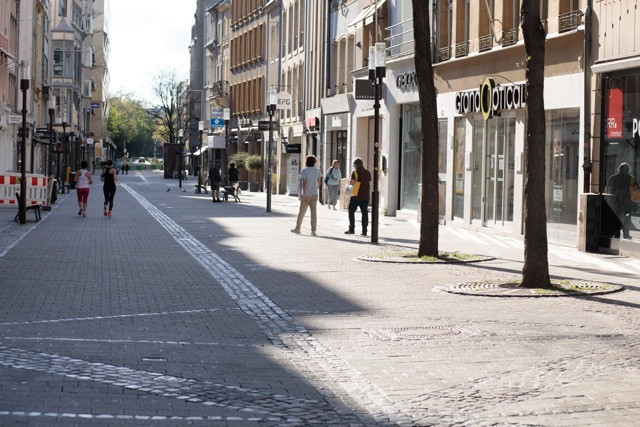A survey published by Quest on Monday morning has revealed that the coronavirus crisis has been “incredibly intrusive” on how people will think about life after the period of confinement ends, say its authors. Some 800 residents were surveyed between 14 and 17 April using the capi method of computer aided personal interviews.
While the general feeling among 88% of the population is that they are either strong and in shape or tense but managing to handle the situation, more than 1 in 10 seems to be in a critical mental state, with 9% saying they worry a lot and 3% feeling as though they are running on empty. The most concerned are females and those in the 35 to 54 age group. Foreign residents also show more fragile state of mind about the crisis than Luxembourgers, which may be because they have vulnerable relatives living in their country of origin. One respondent wrote:
“My parents are in the risk group and in a different country than me and I worry about them 24/7...”
On the other hand, citizens' trust in Luxembourg's institutions is almost total. The authors say that experience shows around 10% of the population will always take a very critical view of authorities, so results showing that trust levels are at 95% for health institutions, 90% for government and even 89% for police are impressive. But while respondents have been positive about the Luxembourg government’s reaction to the crisis, especially the speed with which medical systems were put in place, the pragmatic approach and the transparency and clarity with which public officials communicated, confidence in the EU has suffered. One respondent said:
“EEC total failure, must draw drastic consequences. A disaster & disgrace.”
The economic outlook is much less positive, and the loss of consumer confidence is dramatic with 47% of all households projected to cut down on their expenses. Though again there was a notable difference between Luxembourgers and foreigners, with 10% more locals feeling less inclined to be more careful with expenses than before the crisis.
Tourism, particularly, is expected to suffer as the survey reveals that 15% of residents have already reviewed their plans for holidays abroad, while 25% are still indecisive. “Even on the most optimistic assumption that we will be free to travel this summer, it can be estimated that between 30 and 40% of consumers will not travel,” says Quest.
And in general, many people seem to think their attitude to consumption, relationships and work will change. There was a swell of support (at 45%) for the notion that after the crisis globalisation will be slowed down and economies will become more national or local. Some 38% of respondents also thought people will “rediscover their real values and appreciate the simple things in life”, while 32% also agreed with the statement that “mankind will learn to live in a more responsible way.
